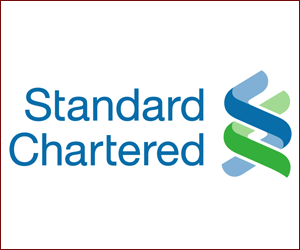Africa > Southern Africa > Stock Market / Finance
Stock Market / Finance in Southern Africa
-
South Africas gold industry, like its economy, is crumbling
SOUTH AFRICA, 2016/03/16 Just off the highway and behind a yellow auto repair shop, Andile Jeremiah slipped into a hole in the ground, descending into an abandoned 100-year-old mine that had helped make South Africa rich. For a poor man in a country with a slumping economy, it was time to look for whatever had been left behind. South Africa was once the world’s biggest gold producer, with more than 75 percent of all global reserves in 1970. That iconic industry created wealth that attracted immigrants from around the world, paid for the construction of roads and railroads and made South Africa’s economy the largest on the continent. -
South Africa Inflation December 2015
SOUTH AFRICA, 2016/01/28 In December, consumer prices increased 0.26% over the previous month, which came in above November’s 0.09% increase. According to Statistics South Africa, December’s result mainly reflected higher prices for food. Inflation increased from 4.8% in November to 5.2% in December, thus hitting the highest level in a year. Inflation is still within the Central Bank’s target range of 3.0%–6.0%. Annual average inflation was stable at November’s 4.6% in December. -
Rand falls while ANC Government shuffles finance ministers
SOUTH AFRICA, 2015/12/16 During the second week of December the Minister of Finance Nhanhla Nene was summarily dismissed by the African National Congress (ANC) government in South Africa under President Jacob Zuma. Nene was restored instantly by David van Rooyen prompting an even deeper drop in the confidence in the Zuma government to address the decline in the key economic indicators. Next less than a week, Rooyen was relieved and restored by Pravin Gordhan, who had served in this position before from 2009-2014. This decision comes amid a worsening economic crisis inside the country, Africa’s most industrialized, which has seen a sharp rise in unemployment, the decline of the rand, energy generation and water shortages. -
International finance institutions have largely neglected to offer assistance to sub-Saharan nations
MOROCCO, 2015/12/03 International finance institutions have largely neglected to offer assistance to sub-Saharan nations on the markets but several are making their own way in an untapped emerging area. On a continent where access to markets is a novel phenomenon and where it is still difficult to attract investors due to legacy issues of poor macroeconomic management and fiscal discipline, inclunding persistent corruption and weak institutions, attempts to raise capital from the markets is a laudable goal. The discipline required by the process has no doubt helped nations that have been successful in recognizing the importance of market perceptions and the need for better macro-fiscal discipline. The number of international bond issuances by sub-Saharan African nations in recent years has accelerated. In addition to South Africa, eight nations in the region have tapped the international capital markets, inclunding initial-time issuers Ghana, Gabon, Senegal, Namibia, Nigeria, Tanzania, Zambia and Rwanda. Furthermore, market intelligence suggests that other sub-Saharan African nations may tap international markets in the near next. Cape Verde national company Imobiliária, which provides housing for disadvantaged people, carried out an $8.8 billion bond issue in October, its second foray into the securities exchange, while Kenya has seen two Eurobond issuances in the completed 12 months. -
Berro, Al Hilal Bank: An Islamic bank doesn’t have to be old or rusty
WORLD, 2015/11/01 Islamic finance is going mainstream, with Western nations planning to issue their initial sovereign sukuk. It still constitutes only a small % of total world financial assets, and most activity is concentrated in a handful of markets—but for how long? “Is the Islamic finance market going world? Of course, it is,” says Mohamed Berro, CEO of Al Hilal Bank, one of the fastest-growing banks in the United Arab Emirates. “World corporations, institutions and sovereign borrowers want to capture Islamic liquidity,” he says. “We can compete on a world basis, particularly at a time at the same time as the world is keen on ethical banking.” -
Zimbabwe: Once You Dollarises There Is Just No Going Back, History Suggests
ZIMBABWE, 2015/01/06 FEBRUARY 2015 will mark six years since Zimbabwe adopted the multi-currency monetary system, commonly referred to as dollarisation. The move was in response to the chaotic hyperinflationary period that had defined the Zimbabwean economic environment for almost a decade prior to February 2009. Most Zimbabweans still are haunted by the memories of that era at the same time as the country's again legal tender, the Zimbabwe dollar entirely lost its usefulness as a medium of exchange, store of price, unit of account and means for deferred payments- all considered features which give any monetary currency its price. Looking through history, it's interesting to note that there has not been any economy that has reverted back to its local currency once it has dollarised. Panama, widely considered as the closest the strategy of dollarisation has come to being successful, Ecuador and El Salvador all still use the US dollar a lot of years next dollarising. The logic behind dollarising is that the government would be aiming to reduce inflation whilst reaping the economic benefits of "co-opting" an extra country's currency. -
South Africa issues Africa’s first dollar-denominated sukuk
SOUTH AFRICA, 2014/10/10 South Africa has debuted sub-Saharan Africa’s initial dollar-denominated Islamic bond. As of the week of 25 September, the initial $500m bond offering is additional than four times oversubscribed on international capital markets. The country was beaten to market by Senegal, which issued $208m worth of local CFA-denominated currency notes in June. The two issuances have preceded offerings by additional established markets in predominantly Muslim North African nations. South Africa’s sukuk, priced at 3.19 % over a 5.75 year span, were sold at the lowest borrowing cost for dollar-denominated bonds since 1994, according to Bloomberg. -
Zimbabwe expands multi-currency regime to nine
ZIMBABWE, 2014/03/02 Four new currencies are to be legal tender in Zimbabwe: the Australian dollar, the Chinese yuan, the Indian rupee and the Japanese yen. They join the Botswana pula, the British pound, the euro, the South African rand and the US dollar as the options in a country whose own currency, the Zimbabwe dollar, collapsed in 2008-9 next a period of astronomical hyperinflation. Monetary policy has stabilised since again, largely thanks to a additional moderate coalition government which lasted until the 2013 election, which again returned power to the Zanu-PF party whose disastrous reign had caused Zimbabwe’s monetary collapse. Exporters and the public can presently open accounts in any of the currencies. -
New coins to celebrate birthday in Botswana
BOTSWANA, 2014/03/01 -
Contractor Dragged to Court Over Inflated Input Prices IN Zimbabwe
ZIMBABWE, 2013/11/19 PROBLEMS associated with arrangement farming have been exposed by a Centenary farmer who has sued Zimbabwe Leaf Tobacco alleging he ended up with a huge deficit because of inflated prices of inputs and the usurious costing structure of the transaction. Tobacco farmer Mr Israel Chirangwana told the High Court on Friday that the structuring of the arrangement he signed was not consistent with public policy and applied an arbitrary costing structure. High Court judge Justice Lavender Makoni reserved judgment in the case in which Mr Chirangwana is challenging provisions of the arrangement farming agreement which left him saddled with a US$50 000 deficit.
- Trending Articles
-
- BAHAMAS: Brand New Residences Bring Modern Luxury Living to Paradise Island Bahamas
- WORLD: Mobilizing Education for Global Health
- CHINA: Support from China for the industrialisation of Angola and Mozambique
- INDONESIA: Empowering Young Women Through Farming in East Nusa Tenggara
- AFRICA: sustainable Housing for Rural Families in Africa
- EGYPT: Egyptian investment firm Qalaa Holdings is confident its new refinery







